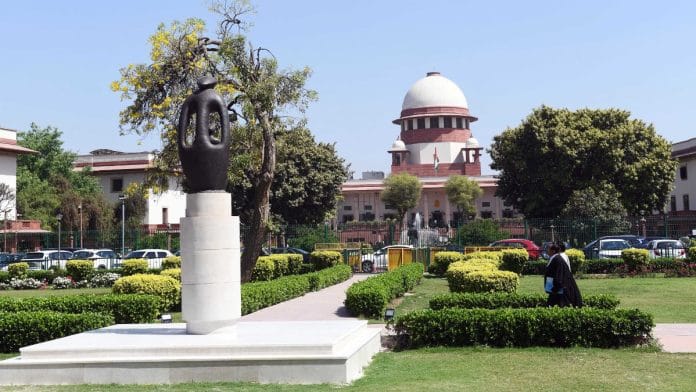New Delhi: Prolonged occupancy, financial investment and civic authority’s inaction do not legitimise unauthorised structures, the Supreme Court has held, while issuing a slew of guidelines to clamp down on illegal constructions.
As part of preventive measures, the top court ordered banks and financial institutions to sanction loans against any building as a security only after verifying the completion or occupation certificate issued by the civic body. The document, according to the judgment, has to be produced before the bank by those applying for loans.
The guidelines impose responsibility on civic authority officials, who in terms of the order would now be held liable for contempt if they issue a competition or occupation certificate to a building constructed in violation of the sanctioned building plan. Besides, no permission or licence to conduct any business or trade can be given by any local body or state government department in any unauthorised building, irrespective of it being a residential or commercial one.
Builders too have been mandated to follow the guidelines strictly and, in the event of failure to comply, can be prosecuted for contempt of court, apart from facing proceedings under respective civil laws, the court order warns.
The Supreme Court’s decision came on an appeal filed against the Allahabad High Court permitting the civic body’s decision to demolish shops and commercial spaces that were illegally constructed on land allotted by the Uttar Pradesh Housing and Development Board. Construction was carried out without obtaining the required approvals.
The appeal was filed on the grounds that the owners were long-standing occupants and that there was a lapse on the part of authorities as no prior notices were issued, informing them about the proposed demolition action of their properties.
In response, the UP Housing and Development Board argued that the constructions were in blatant violation of residential zoning and without official sanctions. Several notices were issued to the occupants and demolition action was taken only when no corrective action was taken, the court was informed. The board said that delay and inaction did not validate illegal constructions.
Dismissing the appeal, a bench of Justices J.B. Pardiwala and R. Mahadevan underscored that the guidelines related to unauthorised construction were in addition to the one issued recently by another bench of Justices B.R. Gavai and K. Vishwanathan, where the court enumerated steps to be followed before an illegal structure is demolished.
Justices Gavai and Vishwanathan had invoked extraordinary power under Article 142 to issue guidelines to stop “bulldozer justice” carried out by states as punitive action against criminals. However, the bench had not condoned unauthorised construction.
Justices Pardiwala and Mahadevan’s ruling reinforced constant warnings by the top court against unauthorised construction and reaffirmed the principle that the same cannot be “permitted to thrive” in blatant violation of mandatory legal provisions.
The directions make it incumbent upon the builder to display the approved plan during the period of construction. Such a plan would only be given upon an undertaking furnished by the builder, assuring that the building would be entrusted to the owner only after obtaining a completion certificate from the authorities concerned.
As per the judgment, a completion certificate to a new building would now be issued only after its personal inspection is conducted by the official in-charge, who has to be convinced that the construction of the new structure has been in accordance with the approved plan. In case deviations are found, grant of completion certificate should be deferred until corrective measures are taken.
All necessary service connections, such as power, water and sewerage amongst others, shall be provided only on the production of the completion certificate. If deviations are detected after the grant of competition certificate, then the authority must take immediate steps to act against the officer who gave the approval for clearing the building for occupation, the judgment directs.
If the planning department or local civic body seeks another department’s cooperation to act against an illegal construction, the court said, the same should be rendered immediately. A delay in responding to such a request would amount to dereliction of duty, inviting disciplinary action.
“If the authorities strictly adhere to the earlier directions issued by this court and those being passed today, they would have a deterrent effect and the quantum of litigation before the Tribunal/Courts relating to house/building constructions would come down drastically,” the court said, as it fixed a 90-day deadline for authorities to decide an appeal filed by a builder or owner against non-issuance of a completion certificate.
“Hence, necessary instructions should be issued by all the State/UT Governments in the form of Circular to all concerned with a warning that all directions must be scrupulously followed and failure to do so will be viewed seriously, with departmental action being initiated against the erring officials as per law.”
(Edited by Mannat Chugh)
Also Read: SC observation puts focus on religion-based quota. How states have dealt with Muslim reservation






